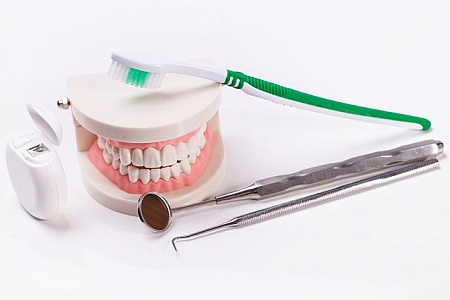How to Take Care of Your Teeth?
Maintaining healthy teeth and gums requires good oral hygiene. It requires habits like brushing twice a day and going to the dentist on a regular basis. Dental health, on the other hand, entails more than just cavities and gum disease.
According to research, there is a correlation between your oral health and your overall health.
Gum disease and tooth decay, if left untreated, can cause pain, tooth loss, and self-esteem issues. Such concerns can result in speech difficulties, malnutrition, and other difficulties in your education, career, and personal life. The good news is that appropriate dental care can help you avoid these issues. The following are the recommended methods for maintaining healthy teeth and gums.
- Brush on a regular basis, but not aggressively. Brushing your teeth twice a day is one of the most critical habits you can have for keeping your teeth clean and removing plaque and bacteria. However, this is only effective if the right technique is used. Brush back and forth in circular strokes for two to three minutes. Replace your toothbrush with soft bristles every three months.
- Floss once a day. Flossing eliminates bacteria and plaque which a toothbrush cannot. It also helps to keep your breath fresh by eliminating food and debris that has become caught between your teeth. People should floss their teeth, according to the Centers for Disease Control and Prevention and the American Dental Association.
- Make use of fluoride. Fluoride, which is found in toothpaste and mouthwashes, is thought to help prevent cavities. A deficiency of fluoride has been linked to tooth decay in studies. Many countries have added fluoride to their drinking water, as advised by many organizations such as the World Health Organization and the Centers for Disease Control and Prevention.
- Regularly visit the dentist. Experts recommend that you visit a dentist every six months for a checkup. A hygienist will clean the teeth and remove plaque and tartar during a basic dental exam. Your dentist will look for indicators of cavities, mouth cancer, gum disease, and other difficulties with your oral hygiene. If you observe any changes in your mouth, see a dentist every once.
- You should not smoke. Smoking damages the body’s immune system, making it difficult for the body to heal tissues, including those in the mouth. Smoking is a risk factor for gum disease, according to the Centers for Disease Control and Prevention. It also has an effect on the look of the mouth, causing yellowing of the tongue and teeth as well as a terrible smell.
- Make use of mouthwash. Certain mouthwashes have been demonstrated in studies to aid in the maintenance of oral hygiene. Chlorhexidine, for example, can aid in the treatment of gingivitis and plaque. Essential oil-infused mouthwashes have also been proven to be effective. You can consult your dentist to get the best mouthwash for your specific needs. It should be noted, however, that it cannot replace brushing and flossing.
- Sugary and starchy foods should be avoided. Sugar consumption can result in cavities. Desserts and candies, as well as numerous sugar-laden processed foods, are common culprits. The World Health Organization recommends keeping your sugar intake to less than 10% of your total daily caloric intake. According to experts, starchy meals such as chips, bread, and pasta can potentially trigger tooth decay.
- Choose water over sugary drinks. Sugar-sweetened beverages are the most common source of added sugars in the average American diet. Drinking juice, soda, and other sugary drinks can raise your chances of getting cavities. The American Dentists’ Association recommends drinking water or unsweetened tea throughout the day and just small amounts of sugary drinks at mealtimes.
Proper dental care from childhood to adulthood can substantially help a person keep healthy gums and teeth. Brushing and flossing on a daily basis, not smoking, eating a healthy diet, and having regular dental exams can all help you avoid cavities, gum disease, and other dental problems. In the long run, it can also improve your overall health.






 |
|